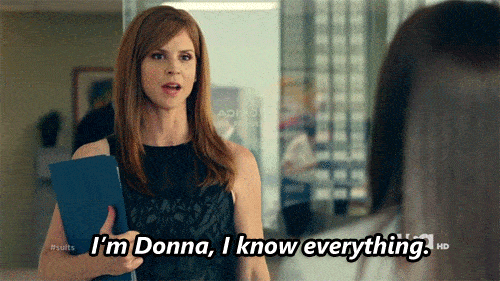Have you attended an interview which you thought you owned but then didn’t get a call offering you the job? You probably prepared tirelessly for that interview and knew everything that you needed to know about the company and possessed all the skills for the role. You would have also known the answers to every question asked and were confident throughout. Here are 5 blunders that could cost a perfectly suitable candidate to lose out on a great job role.
Interview Mistakes That Could Cost You The Job
Here are some interview mistakes that candidates make without realizing that could make you miss out on the opportunity.
1. Over-explaining
Plenty of interview candidates make this mistake that makes an instant black mark on their profile. Most interviewers don’t share their concerns about candidates during the interview as there are other candidates lined up in the lobby battling it out for the job. This gives you reason to take matters into your own hands to pinpoint what exactly it was that was missing in your application and address them on your own.
There’s a minute difference between answering a concern addressed by your interviewer and highlighting a weakness. The longer you take to explain yourself, the more suspicious you sound. If you’re in a situation where you’ve been out of a job for a while, lost a job or left a job, you need to work on an answer that is brief and confident. If you sound like you’re trying to justify yourself or you give out excess information, you are likely to create room for more questions. Frame your answer in a short and succinct manner. There’s nothing worse than sounding nervous, bitter, unsure or unprepared while addressing a delicate matter.
For example, let’s say your company decided to restructure or downsize and you lost your job in the bargain. When your interviewer asks you why you decided to leave your previous company, you could say something like this, “It turned out to be a blessing when my previous company decided to restructure as it gave me the chance to refocus on the career path I’d like to take and I’m really glad to be here with you for this very reason.” Voila! In one sentence, you addressed the concern and shone the spotlight on the opportunity at hand.
2. Trying to be everything
While it is important to showcase traits of being a quick learner and a self-initiator, don’t go overboard with it. It’s important to keep in mind that the company is hiring for a specific role. If the job requires you to perform a task that requires a certain skill for which you don’t have much experience with, it’s best to be transparent.
For instance, the interviewer tells you, “We require our new hire to be familiar with digital marketing,” and he/she looks at you as if to ask you if that’s something you’re comfortable with, it’s ideal to be honest. You could probably say something like this, “I do not possess rich experience with digital marketing. However, I’m a quick learner and would be truly excited to deepen my knowledge of that in this position.”
3. Leading the interview
Keep in mind, they called you in, and it isn’t the other way round. Make sure you allow your interviewer to lead. Don’t try to get too paly and begin to ask personal questions. While it’s admirable to be warm and approachable, it doesn’t always work in your favor. It can sometimes even backfire, 17% of hiring managers consider asking personal questions during an interview to count against you. While it is a positive to ask some questions about at the end of the interview (or in between, only if they open up the window), it’s very important to keep in mind that they’re in the pilot’s seat.
4. Lacking warmth
A lot of candidates who walk into interviews seem so professional and polished that they lack the basic warmth that’s required to connect. You’d be surprised to hear that 38% of hiring managers have dismissed potential candidates due to their unwillingness to smile.
Interviewers often come across candidates who are so clean and perfect that they can’t connect with them. While being professional is highly sought, it is also important to remember to be human. Interviewers want candidates who can connect with the organization, gel with the workers, and bring results.
If you think that you might fall into this category, you could prepare a statement that sounds something like, “the reason this opportunity and company strikes a personal chord with me is…” Tell your interviewer what it is about the role and company that you really like. Make sure it sounds natural and not contrived. If it sounds staged, your answer is either too long or you haven’t practiced enough. Make sure you look your interviewer in the eye when you say this to them.
5. Negativity
Just like most social groups, nobody likes sitting with someone who has anything negative to say. 49% of hiring managers stated speaking negatively about a co-worker or former boss as one of the top mistakes they observe during interviews. Don’t badmouth and no matter what don’t tell your interviewer that you hated your previous job, even if you did. Instead, approach the subject from an angle of gratitude. Talk about what you learned from the job, the exposure you received with the company, and that you’re moving out now because you’re ready to grow further.
It all bottles down to your ability to stand out from the other candidates and how well you handled yourself during the interview. To land the job, it’s necessary to be personable, professional, and be able to sell yourself in a simple and concise way.
Keep in mind what not to do at your next interview and you will notice the results. You might also find our article on helpful interview tips useful for your next interview. We wish you good luck from www.unemploymentcalculator.org!

